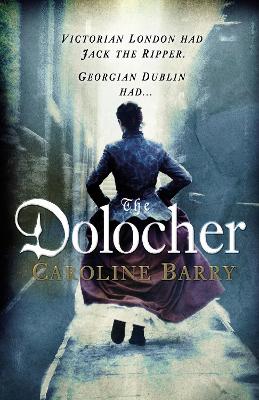
celinenyx
Merriment is an unconventional woman. Not only did she live at sea for years, she has taken to wearing trousers and makes herself useful as apothecary now she has relocated to Dublin. Her new boarder, Solomon, writes broadsheets for a living and has plenty of secrets. They live in a time of tumult - a terrifying demon stalks the streets of Dublin, and its inhabitants are turning against each other. Is the Dolocher truly supernatural, as Solomon intuits, or is there a rational explanation, which Merriment reasons there has to be?
There is plenty of good in The Dolocher. This rather meaty book is exceptionally researched, on two counts. Not only is the amount of detail impressive, Ms Barry also captures the historical mindset very well. On one hand the Dolocher gives rise to terror and fear, while on the other it sparks pranks and humour. These two emotions go hand in hand, and this duality underpins the novel.
The choice of main characters is interesting, and I enjoyed Janey, a street-wise orphan girl that is far from shy. She was lovely, and her development alongside Merriment and Solomon is heart-warming. As is to be expected there is a romantic sub-plot between our adult main characters. The tension between them peters out over repetitive problems and the resolution felt like a non-event. I do like the unconventional pairing, but their overcoming of their problems wasn't as satisfying as I would have hoped.
The Dolocher is a very long book - my edition just about touches 500 pages in smallish print. The novel is incredibly detailed, and that turned out to be its downfall. Where the descriptiveness adds to the atmosphere in the first half, the repetitiveness bogs down the later section. We know how Dublin looks at this point, we know the smells and the bustling and the unkemptness of its inhabitants. It does not need to be told anew because if an image is well-presented, it will stick inside the reader's mind. A minor recall would have sufficed. The plot too could have used some culling - often the characters are merely walking around and talking to people. There is a whole slew of colourful minor characters that I did enjoy, however, and the dialogues were well done.
Although it starts off strong, The Dolocher loses steam half-way because of over-descriptiveness and an occasionally meandering plot. It is however, also well-researched and thoughtful. It displays the kindness of people, and is more about its characters and the city in the eighteenth century than it is about the killings and violence.
--
Trigger warnings: violence, mentions of abortion, mentions of torture, mentions of suicide, death of very young children, gambling addiction.
